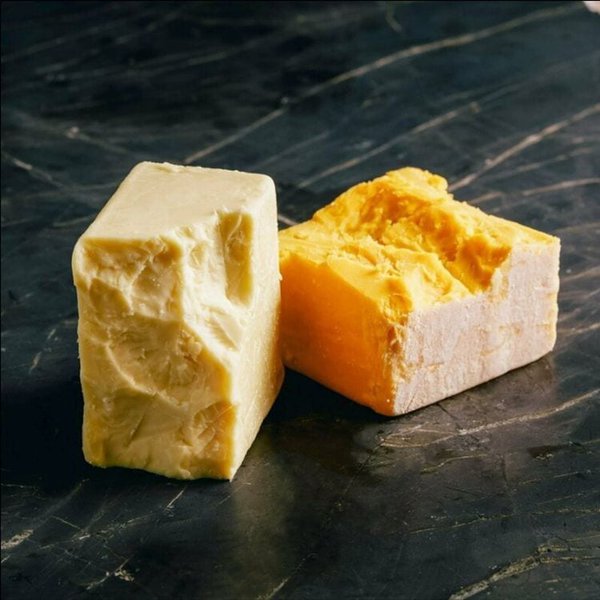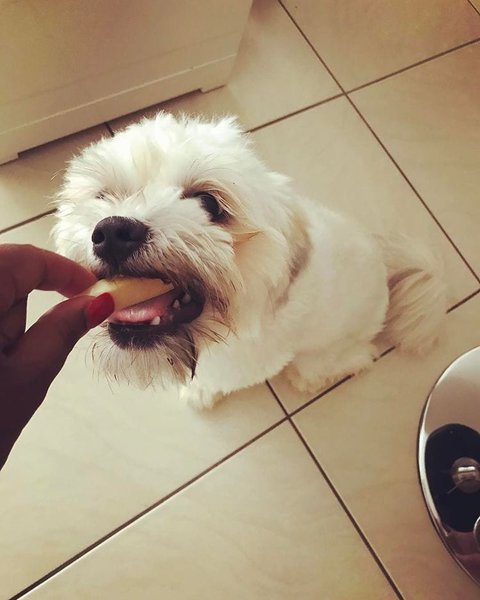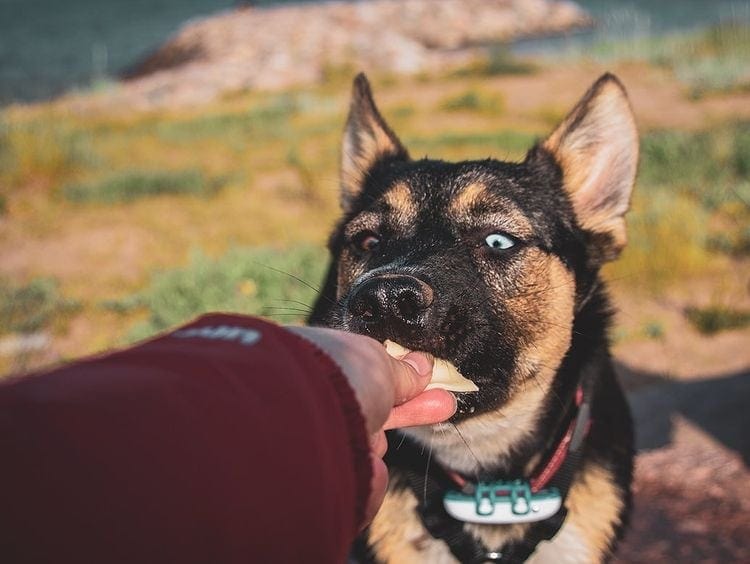It’s hard not to like cheddar cheese. Even lactose-intolerant people are sometimes willing to risk it all for a chance to experience that tangy and creamy goodness. Our appreciation for cheddar cheese as mankind is one thing we have in common with our four-legged best friends.
But is cheddar cheese safe for dogs to eat?
In most cases, it is perfectly alright to feed your dog some cheddar cheese. You just have to make sure that they are not allergic to dairy products. Even in the cases where the dog can tolerate dairy, it is still important to practice moderation.
In the following sections, we will take a closer look at why it is sometimes ok to feed your dog cheddar cheese, as well as what happens if you take it too far.
Can Dogs Eat Cheddar Cheese?

Most dogs can safely take cheddar cheese. You just have to ensure that you give it to them in strict moderation. The ideal amount that you can give your dog in a day depends largely on their size but also on their ability to tolerate the dairy.
While it is mainly safe to give your dog some cheddar cheese from time to time, there are a few scenarios where it may not be a good idea. Here are a few of these exceptions where even a small amount of cheddar cheese would be bad for your dog.
Lactose Intolerance
Lactose intolerance is one of the most common food allergies in dogs. If your dog is lactose intolerant, cheddar cheese will inevitably trigger the reaction and leave your dog in a lot of discomforts.
Some of the features of lactose intolerance include bloating and increased flatulence, abdominal discomfort, and diarrhea. If your dog has displayed such signs in past encounters with dairy products, it is best to avoid giving them any cheddar cheese.
Gastrointestinal Irritation
If your dog is currently experiencing gut irritation, it is also best to avoid giving them cheddar cheese. Clues that your dog is experiencing such irritation include things like vomiting, diarrhea, abdominal swelling, resistance to handling, and a reduction in appetite.
In such cases, giving your dog cheddar cheese will only worsen these symptoms regardless of their lactose tolerance status.
Medications Where Cheese Is Contraindicated
There are some medications that dogs take that interact harmfully with dairy products like cheese. If your dog is on any kind of medication, it is best to confirm with your vet first to find out whether it is safe for your dog to enjoy some cheddar cheese while they are on the meds.
Cheese Infused With Additional Ingredients
Cheddar cheese is not always pure cheddar cheese. You can find cheese infused with all sorts of ingredients with some being toxic to dogs.
Cheddar cheese is infused with ingredients like onions and garlic as well as chili peppers and herbs like thyme. These ingredients have various short-term and long-term consequences to the dog’s health including life-threatening anemia.
If the cheddar cheese has any of these ingredients, or others, known to be toxic to dogs, you should not feed it to your pooch.
Obese Or Overweight Dogs
Finally, you should avoid giving your dog cheddar cheese or any other kind of cheese if they are overweight or already obese. Cheddar cheese is very rich in calories and will only worsen the situation for the dog.
Is Cheddar Cheese Good For Dogs?

If there are no reasons against giving your dog cheddar cheese, it is actually very good for the pooch. Cheddar cheese has a rich nutritional profile that your dog could greatly benefit from in moderate amounts.
Here are some of the nutrients that cheddar cheese has to offer your dog.
Protein
As a dairy product, cheddar cheese is mostly protein. Protein is particularly important for growing pups and active doggies as it helps with muscle strengthening. The amino acids in cheddar cheese proteins are also useful when it comes to ensuring a healthy coat.
Calcium
Cheddar cheese is rich in calcium. Your dog will need this for forming strong and healthy bones. This is particularly useful for dogs with issues like arthritis or joint dysplasia. Calcium also plays other important roles in the dog’s body including facilitating muscle contraction.
Vitamin A
Dogs may not be fully nocturnal but they definitely need as much help as they can get ensuring that their night vision is as good as it can be. The vitamin A in cheddar cheese exists to help with this very need ensuring that your dog’s eyesight is as close to perfect as possible.
Essential Fatty Acids
Cheddar cheese further contributes to the dog’s stockpile of healthy fats. These fats are used everywhere from the dog’s brain to its gut. These essential fatty acids are perhaps most important in the coat where they ensure smooth and healthy skin and fur.
Probiotics
Cheeses like cheddar are great sources of probiotics. These are the good bacteria that live in your dog’s gut and that help ensure optimum functioning of both the dog’s digestive system and its immune system.
How Much Cheddar Cheese Can Dogs Have?
Your dog should only eat a few bites of cheese a day. Large dogs can have a full slice of cheddar cheese especially if it is the low-fat kind. Smaller dogs should only have a quarter or half of the same slice.
The biggest concern when it comes to the ideal service size for cheddar cheese when it comes to feeding a dog is the calory count. For some perspective, a single slice of cheddar cheese can have as many as 113 calories in a slice of cheddar cheese.
Considering that most dogs have daily caloric requirements ranging from 800 to 1,800 kcal, this single slice of cheddar cheese will already contribute to a huge part of their daily needs. The worst part is that it will take several slices of the cheddar for the dog to be satisfied.
To avoid overfeeding your dog, stick to using small pieces pinched off the slice of cheddar as treats or rewards for good behavior during training.

What Happens If Dogs Eat Too Much Cheddar Cheese?
If your dog eats too much cheddar cheese, it will most likely develop a condition known as pancreatitis. In addition to this short-term consequence, your dog may suffer from long-term issues like obesity and heart disease.
Here is a bit more about these common side effects of letting your dog overindulge in cheddar cheese.
Pancreatitis
Pancreatitis is a condition where the dog’s pancreas becomes inflamed and becomes functionally and structurally compromised. It is an extremely painful condition and will often render your dog a whining mess in too much pain to move.
Untreated pancreatitis could be fatal to the dog.
Therefore, if your dog eats too much cheese and starts to display signs of intense pain as well as signs like vomiting and diarrhea, you need to take the pooch to the vet as soon as possible.
Gut Irritation
Too much of any kind of food will cause gut irritation in your dog. Given the aged nature of cheddar cheese, the irritation may be a bit more dramatic than it would have been with other foods.
The irritation typically manifests as either vomiting or diarrhea or in some cases, both. Furthermore, your dog may avoid eating or drinking anything as a result of the discomfort.
Bloating
Digestion of cheese causes bloating and increased flatulence even in dogs that are not lactose intolerant. This is a huge concern in some dog breeds more than others especially if the breed is susceptible to gastric dilatation volvulus.
Obesity
Not all the consequences of eating too much cheddar are immediate for your dog. Some like obesity take a bit longer to manifest but can be just as debilitating for the dog. Obesity may also be accompanied by comorbid conditions like diabetes and heart disease.






